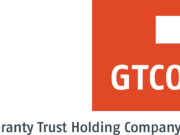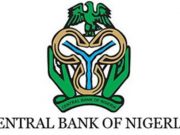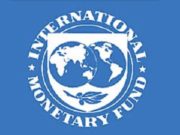Telecoms giant, Airtel Nigeria has said the full implementation of the directive of the Federal Government on National Identity Number (NIN) and Subscriber Identity Module (SIM) that barred over 72million from originating calls from their mobile phones took toll on its subscriber base.
The Revised National Digital Identity Policy for SIM Card Registration approved by the Federal Government last year had made the use of NIN mandatory for SIM registration. Part of the new policy was for subscribers to link their NIN with their SIM. After several extensions of deadlines for subscribers to link their NINs with their SIMs, the Federal Government directed the Nigerian Communications Commission (NCC) to bar SIMs not linked to NINs from making calls.
The telecom company, in its results for the year ended March 31, this year released yesterday, it said: “NIN/SIM regulations in Nigeria impacted customer growth in H1, but then returned to strong growth, adding four million customers in Nigeria during H2’22.”
Highlight of the report showed that revenue grew by 20.6 per cent for the year, to $4.714million, and 17.8 per cent for Q4. Constant currency underlying revenue grew 23.3 per cent for the year and 19.1per cent in Q4.
It said constant currency underlying revenue growth was strong in all regions: Nigeria up 27.7per cent, East Africa up 22.7per cent and Francophone Africa up 17.2per cent; and across all key services, with revenue in Voice up 15.4 per cent, Data up 34.6per cent and Mobile Money up 34.9 per cent.
Underlying Earnings Before Interest, Taxes, Depreciation, and Amortization (EBITDA) of $2,311million, grew by 29.0per cent in reported currency; underlying EBITDA margin of 49 per cent, increased by 294 basis points; operating profit grew by 37.2 per cent to $1,535million in reported currency; while profit after tax grew by 82.0per cent to $755million.
The operator posted operating free cash flow of $1,655million, up 40.5per cent, with net cash generated from operating activities up 20.7per cent to $2,011million. Over the last 12 months, the business has repaid nearly $1.4billion of debt at HoldCo as a result of strong cash upstreaming across its OpCos and proceeds from minority investments in mobile money and tower sales while its leverage ratio improved to 1.3x from 2.0x in the prior year, with $1billion of debt now held at HoldCo (FY’21: $2.4billion).
It posted a customer base of 128.4 million, up 8.7per cent, with increased penetration across mobile data (customer base up 15.2per cent) and mobile money services (customer base up 20.7 per cent).
Board recommended a final dividend of three cents per share, making total FY’22 dividends 5 cents per share (FY’21: 4 cents).
Airtel’s Chief Executive Officer, Segun Ogunsanya, said: “This is another strong set of results for Airtel Africa, demonstrating our solid execution as we continue to enrich the lives of a growing number of people through leveraging the sizeable opportunity to promote digital and financial inclusion across our markets.
“We have delivered strong double-digit growth in revenues across all our regions and all our key services, with improving margins driven by strong cost control, and expanding cash generation which is enabling us to continue to invest in our network and services and expand our distribution, as well as strengthening our balance sheet and increasing our returns to shareholders. We are connecting more customers in new and existing coverage areas and driving usage levels and ARPUs to new highs.
“We have executed on a number of strategic initiatives in the year, with tower sales completed in four countries, $550million of minority investments secured for our mobile money business and a successful buyout of minorities in our Nigerian operation. Our receipt last month of a full PSB licence in Nigeria will help us to accelerate financial inclusion in the territory and drive our mobile money business even faster.
“While the fundamentals of our six-pillar growth strategy remain unchanged, we are looking to accelerate our performance through a greater focus on digitalisation and we have underpinned our strategic pillars with our sustainability ambition.”
He expressed pride in the progress the company has made in articulating its sustainability strategy this year as well as the partnership announced with UNICEF to help drive and support educational programmes in the territories where it operates.
“I very much look forward to us publishing our pathway to net zero and our first full sustainability report later in the year.
“Turning to the outlook, long-term opportunities for us remain attractive. While mindful of currency devaluation and repatriation risks, we continue to work actively to mitigate all our material risks and to deliver value for all our stakeholders. There are increasing challenges from global inflationary pressures, but we continue to target revenue growth ahead of the market and moderate margin expansion,” he added.
Credit: thenationonlineng.net








































































